Uncovering Yiwu Ancient City: A Must-Visit Destination for History Lovers
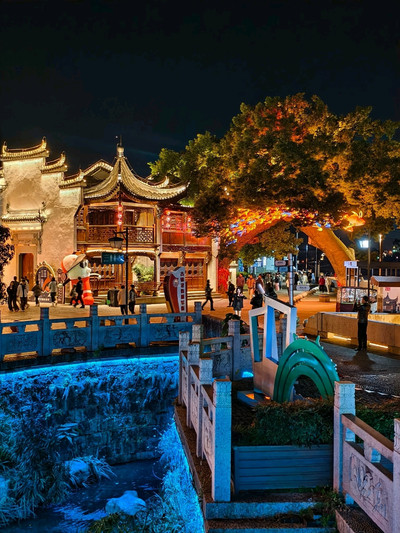
An Essential Guide to Visiting Yiwu Ancient City
Nestled in the heart of Zhejiang Province, Yiwu Ancient City (伊吾古城) offers a fascinating glimpse into China’s rich history and vibrant cultural tapestry. This historic gem, often overshadowed by Yiwu’s bustling reputation as the world’s capital for small commodities, invites travelers to step back in time and explore its charming streets, traditional architecture, and deep-rooted heritage.
As you wander through the ancient city, the remnants of its storied past come alive—from the intricately carved wooden storefronts to the beautifully preserved temples that echo centuries of devotion and artistry. Yiwu Ancient City is not just a destination; it’s a living museum where the past meets the present, allowing visitors to immerse themselves in the local customs, crafts, and culinary delights unique to this region.
In this guide, we’ll uncover the must-see attractions, hidden gems, and local delicacies that make Yiwu Ancient City an essential stop on your Chinese adventure. Whether you’re a history buff, a food lover, or simply seeking to experience the authentic essence of Zhejiang, Yiwu Ancient City promises an enriching experience that will linger in your memory long after you’ve left its storied streets. Prepare to be captivated by the charm and warmth of this ancient city, where every corner tells a story and every visit reveals something new.
In This Guide
- An Essential Guide to Visiting Yiwu Ancient City
- The Rich History and Legends of Yiwu Ancient City
- Main Highlights: What You Absolutely Can’t Miss
- Planning Your Visit: A Practical Guide
- Tickets: Prices, Booking, and Tips
- How to Get There: A Complete Transportation Guide
- Local Cuisine and Accommodation Nearby
- Frequently Asked Questions
- Final Thoughts on Your Trip
The Rich History and Legends of Yiwu Ancient City
Nestled in the heart of Zhejiang Province, Yiwu Ancient City boasts a history that is as rich and intricate as the tapestries of culture woven into its very fabric. Originally known as Wushang during the Qin Dynasty (222 BC), the city has undergone several transformations, both in name and character, throughout the centuries. The evolution of its name from Wushang to Wuxiao, and finally to Yiwu in 624 AD, reflects not only the passage of time but also the deeper stories and legends that have shaped this vibrant community.
One of the most enchanting tales associated with the city’s name is that of Yan Wu, a devoted son renowned for his filial piety. According to legend, Yan Wu lived a life of humble means, yet he remained unwavering in his commitment to care for his aging parents. Following his father’s passing, a remarkable event unfolded: a flock of crows, moved by Yan Wu’s profound devotion, flocked together to assist him in burying his father, injuring their beaks in the process. This poignant act of loyalty and sacrifice ultimately inspired the name Yiwu, a tribute to the virtues of compassion and respect for one’s elders.
Yiwu’s historical significance is not confined to its name alone. The city played a pivotal role in trade and commerce, becoming a bustling hub long before it was recognized as the world’s capital for small commodities. The vibrant markets that dot the landscape today echo the lively exchanges of goods and culture that have characterized Yiwu for centuries. As a testament to its economic vitality, Yiwu is also part of the China (Zhejiang) Pilot Free Trade Zone, which has further propelled its status on the global stage.
Beyond commerce, Yiwu Ancient City serves as a repository of cultural heritage, with numerous landmarks that capture the essence of its storied past. The architecture of the ancient town reflects traditional Huizhou styles, showcasing intricate carvings and wooden storefronts that speak to the craftsmanship of artisans from ages past. Sites like Shuanglin Temple and the majestic Jiming Pavilion, which blends traditional craftsmanship with modern aesthetics, draw visitors not only for their beauty but also for the stories they embody.
Additionally, Yiwu is home to a diverse population, including various ethnic groups such as the Han, Miao, and Tujia, each contributing to the city’s rich tapestry of traditions and customs. This diversity is celebrated through festivals and cultural events, where age-old practices such as Yiwu Daoqing opera and the art of kite making come to life, preserving the intangible cultural heritage that is vital to the city’s identity.
As international travelers wander through the ancient streets of Yiwu, they are not merely exploring a destination; they are stepping into a living museum that narrates the tales of resilience, devotion, and cultural exchange. The legends and history of Yiwu Ancient City resonate through time, offering a glimpse into the past while illuminating the vibrant spirit of the present. Whether it’s through its bustling markets, serene temples, or the captivating stories that linger in the air, Yiwu invites all who visit to discover its timeless charm and rich heritage.
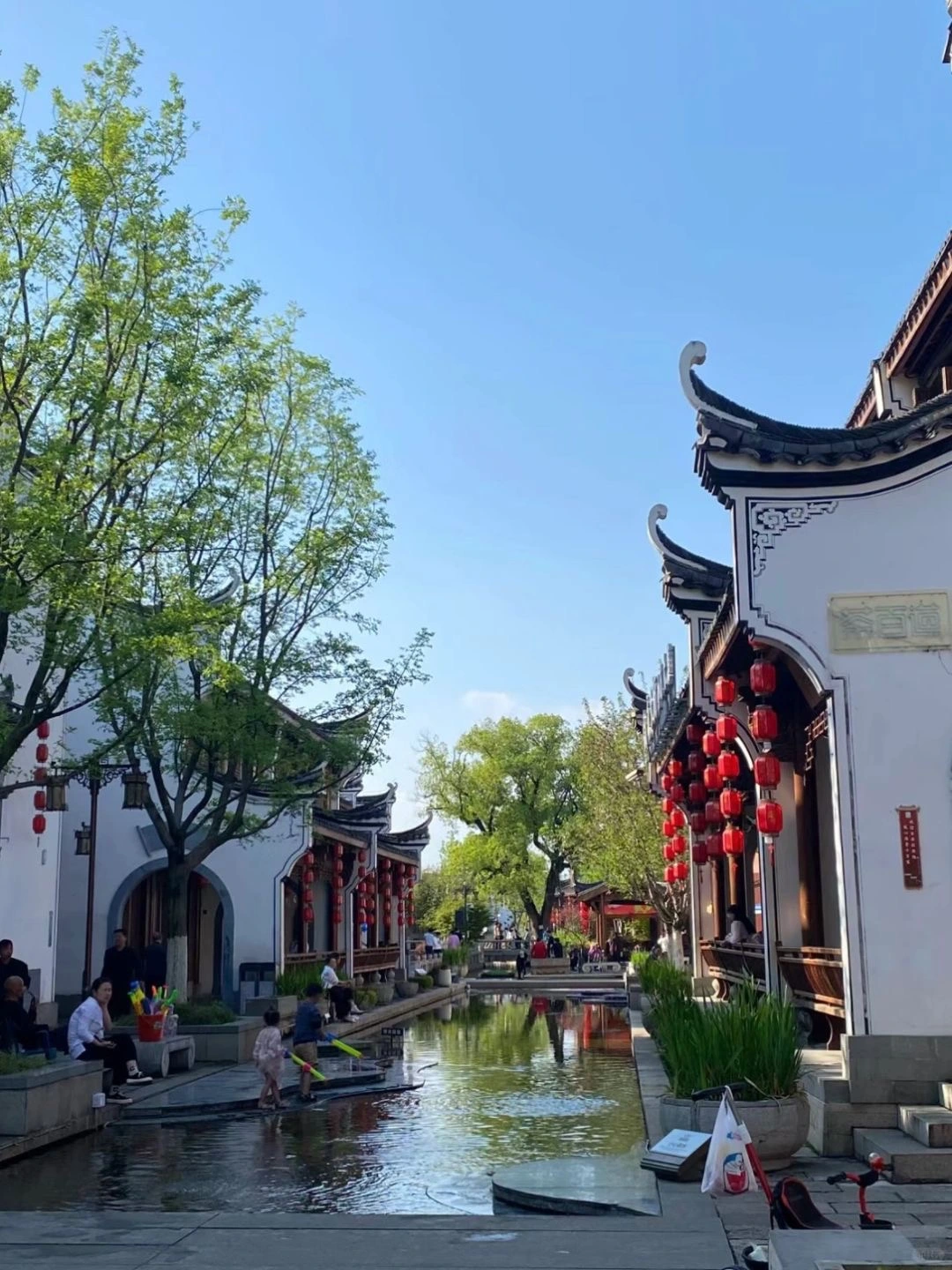
Yiwu Ancient City.
Main Highlights: What You Absolutely Can’t Miss
When visiting Yiwu Ancient City (伊吾古城), there are several captivating highlights that embody the essence of this historic locale. From its rich cultural tapestry to vibrant marketplaces, here’s what you absolutely cannot miss during your exploration.
Yiwu International Trade City
Start your journey at the Yiwu International Trade City, renowned as the world’s largest small commodity wholesale market. This sprawling complex offers a massive array of products, from textiles and electronics to handicrafts. Wander through the colorful stalls and experience the pulse of international trade firsthand. It’s not just a shopping destination; it’s a cultural melting pot where you can engage with vendors from various countries.
Binwang Night Market
As dusk falls, head to the Binwang Night Market. This bustling market stretches 350 meters and boasts over 800 stalls, serving up an array of local delicacies and international foods. The lively atmosphere is perfect for sampling street food, shopping for unique souvenirs, or simply soaking in the vibrant night culture. Make sure to try local favorites like Donghe Meat Pie and Tangyang Sticky Brown Sugar Cake while you explore.
Fotang Ancient Town
For a glimpse of traditional Chinese architecture, visit Fotang Ancient Town. This historic town is a treasure trove of well-preserved Huizhou-style buildings and charming wooden storefronts. Stroll along the narrow streets and appreciate the intricate carvings that tell stories of Yiwu’s rich history. The serene ambiance makes it an ideal spot for photography and reflection.
Nanshan Park
Nature lovers should not miss Nanshan Park, a vast expanse of greenery perfect for outdoor activities. Whether you’re looking to cycle through the park or simply enjoy a leisurely walk, the fresh air and beautiful landscapes provide a peaceful retreat from the bustling city. The park also offers stunning views of Yiwu’s skyline, especially enchanting at sunset.
Yiwu Botanical Garden
Spanning 840 hectares, the Yiwu Botanical Garden is an ecological paradise that showcases a variety of themed gardens. It’s an excellent place for families and nature enthusiasts, featuring a pet zone and educational exhibits. The garden is particularly lovely during spring when flowers bloom in vibrant colors, making it a picturesque setting for a picnic or a leisurely stroll.
Jiming Pavilion
Perched atop Jiming Mountain, the Jiming Pavilion offers not only a stunning architectural design but also panoramic views of Yiwu. This wooden structure combines traditional craftsmanship with a modern touch, showcasing exquisite Dongyang wood carvings. It’s a perfect spot to relax, enjoy the scenery, and learn about local history through the pavilion’s informative displays.
Yiwu Tiandi
For a taste of modernity intertwined with history, visit Yiwu Tiandi, a newly developed shopping district. Here, you can explore a mix of flagship stores alongside historical landmarks like Bajiao Well. The European-style architecture creates a charming backdrop for a leisurely shopping experience or a coffee break in one of the many cafes.
Cultural Events and Festivals
If you’re lucky enough to visit during one of Yiwu’s vibrant festivals, such as the Yiwu Half Marathon or the Yinglong Lantern Festival, you’ll witness the city’s cultural heritage in full swing. These events not only celebrate local traditions but also bring together residents and visitors in a spirit of community and festivity.
Culinary Delights
Lastly, indulge in Yiwu’s culinary scene. Be sure to try Shangxi Beef Offal Stew or Fotang White-Cut Goat Meat for an authentic taste of local flavors. The city’s diverse food offerings reflect its rich cultural heritage, making every meal a delightful exploration of Yiwu’s traditions.
Conclusion
Yiwu Ancient City is a captivating blend of history, culture, and modernity, making it an unforgettable destination for travelers. From the bustling markets to serene parks and ancient towns, every corner offers something unique. Make sure to immerse yourself fully in this vibrant city, and cherish the experiences that will stay with you long after your visit.
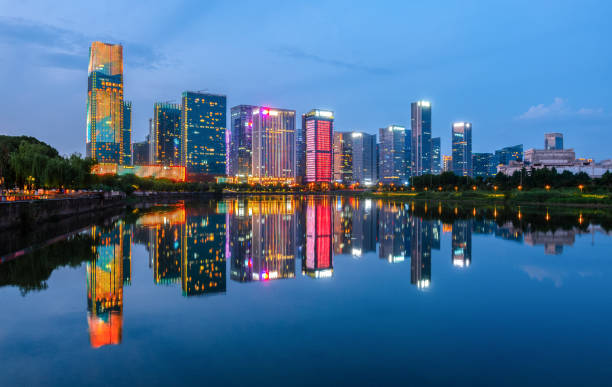
Yiwu Ancient City.
Planning Your Visit: A Practical Guide
Visiting Yiwu Ancient City offers a unique blend of rich history, vibrant culture, and modern conveniences. To ensure your visit is enjoyable and memorable, here’s a practical guide to help you navigate this fascinating destination.
Getting There
By Air:
The most convenient way to reach Yiwu is by flying into Yiwu Airport (YIW), which connects with major cities in China. From the airport, you can easily hail a taxi or use ride-hailing apps to reach your destination.
By Train:
Yiwu is well-connected by train, with Yiwu Railway Station and Yiwu West Station serving as major hubs. High-speed trains from cities like Shanghai, Hangzhou, and Nanjing make for a quick and comfortable journey.
By Bus:
Local buses and long-distance coaches are also available, providing access from surrounding cities. Ensure to check the schedules in advance, especially during peak travel seasons.
Best Time to Visit
Yiwu enjoys a subtropical monsoon climate, making it suitable for year-round visits. However, the ideal time to explore the Ancient City is during spring (April to June) and autumn (September to November) when the weather is mild, and outdoor activities are most enjoyable. Try to avoid the summer months (July and August) due to higher humidity and temperatures.
Where to Stay
Yiwu has a range of accommodation options catering to different budgets:
-
Luxury: For a lavish experience, consider staying at the Yiwu Marriott Hotel or Ramada Plaza Yiwu, which offer excellent amenities and convenient access to attractions.
-
Mid-Range: The Shangri-La Hotel Yiwu and Jinjiang Inn provide comfortable stays at reasonable prices.
-
Budget: Hostels and guesthouses like Yiwu 7 Days Inn offer affordable yet cozy options for budget travelers.
Must-See Attractions
-
Yiwu International Trade City: Known as the world’s largest small commodity wholesale market, this bustling complex is a must-visit for shopping enthusiasts and offers a glimpse into Yiwu’s trade culture.
-
Fotang Ancient Town: Immerse yourself in history as you stroll through traditional streets lined with Huizhou-style architecture, wooden storefronts, and local crafts.
-
Shuanglin Temple: This serene temple offers a peaceful retreat, showcasing beautiful architecture and rich cultural heritage.
-
Jiming Pavilion: Climb to this picturesque pavilion for panoramic views of the city and the surrounding landscapes.
-
Yiwu Botanical Garden: Perfect for nature lovers, this expansive garden features themed areas and educational exhibits about local flora.
Culinary Delights
Yiwu’s cuisine is a feast for the senses, reflecting its diverse cultural influences. Don’t miss these local specialties:
-
Donghe Meat Pie: A crispy pancake filled with savory pork, it’s a local favorite that embodies Yiwu’s culinary charm.
-
Shangxi Beef Offal Stew: A hearty dish made with tender beef tripe, perfect for adventurous eaters.
-
Tangyang Sticky Brown Sugar Cake: A sweet treat made from glutinous rice flour and brown sugar, it’s a must-try for dessert lovers.
-
Yiwu Handmade Noodles: This UNESCO-listed craft features unique preparation methods and is a staple in local dining.
Cultural Experiences
Engage with Yiwu’s rich heritage by exploring its intangible cultural heritage projects, including traditional crafts like Yiwu Brown Sugar Making and Wu Opera performances. Look for local festivals that celebrate these traditions, providing insights into the city’s vibrant culture.
Getting Around
Yiwu is fairly compact, making it easy to navigate on foot, especially in the Ancient City area. For longer distances, consider using local buses, taxis, or ride-hailing services like Didi. Renting a bicycle can also be a fun and eco-friendly way to explore the city.
Safety and Tips
-
Language: While Mandarin is widely spoken, English may not be as common. Download translation apps or carry a phrasebook to help with communication.
-
Cash vs. Card: Although many places accept cards, it’s advisable to carry some cash (RMB) for small vendors and markets.
-
Cultural Etiquette: Respect local customs, especially in religious sites. Dress modestly when visiting temples and be mindful of local traditions.
By keeping these tips in mind, you can fully enjoy your journey to Yiwu Ancient City, experiencing the blend of history, culture, and modernity that makes this destination truly unique.
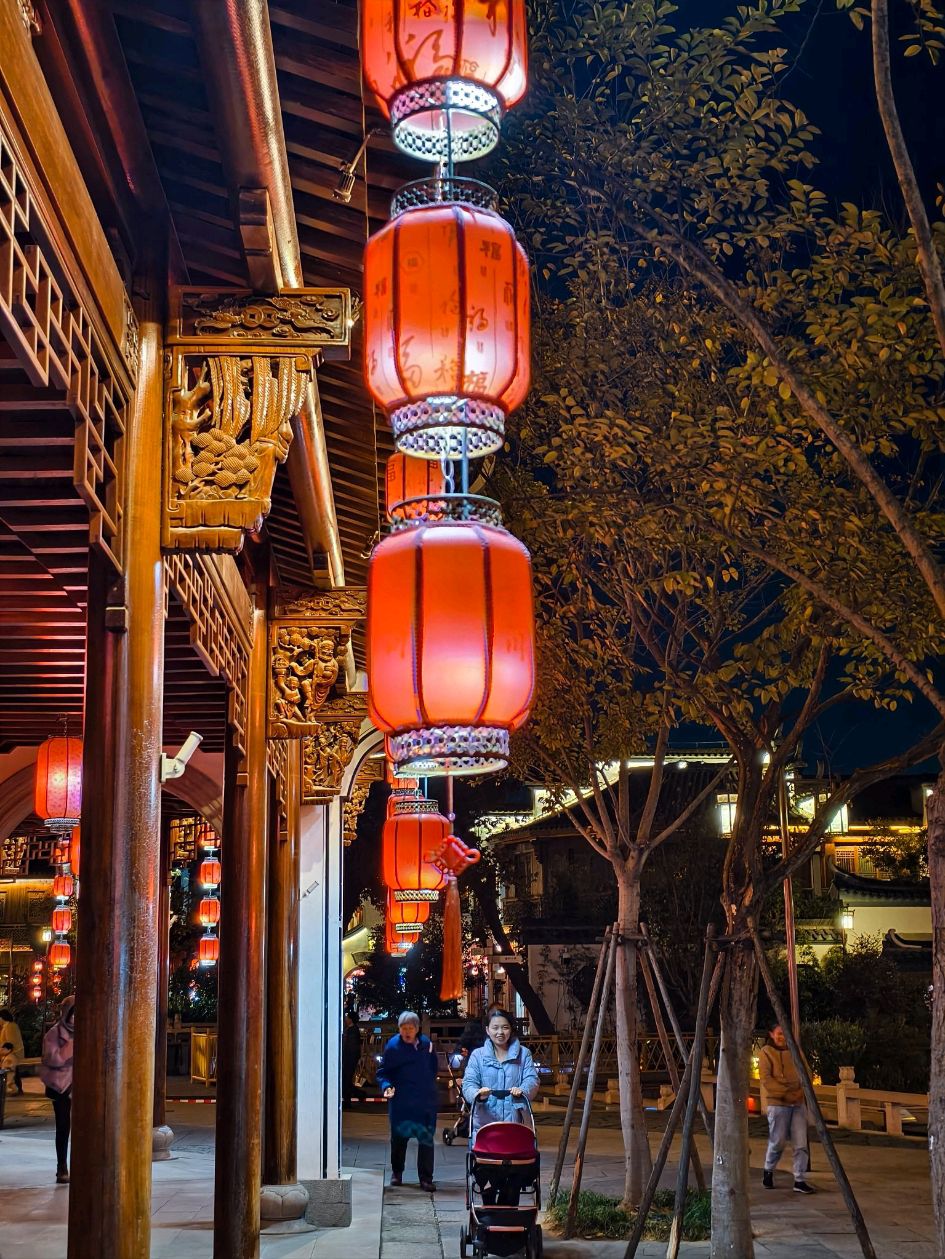
Yiwu Ancient City.
Tickets: Prices, Booking, and Tips
Visiting Yiwu Ancient City is an enriching experience, blending history with cultural exploration. Here’s everything you need to know about ticket prices, booking options, and tips for your visit.
Ticket Prices
Admission to Yiwu Ancient City is quite affordable, making it accessible for all travelers. As of 2025, the ticket prices are approximately:
- Adults: ¥20 (about $3 USD)
- Children (under 12 years): ¥10 (about $1.50 USD)
- Seniors (over 60 years): Free entry with valid ID
Prices may vary during special events or festivals, so it’s wise to check for any promotional offers before your visit.
Booking Options
You can conveniently purchase tickets for Yiwu Ancient City in several ways:
-
On-Site Purchase: Tickets can be bought at the entrance of the ancient city. There are usually no long lines, making this a quick option.
-
Online Booking: Websites such as Trip.com and local travel platforms allow for advance booking. This can be particularly useful during peak tourist seasons when crowds are larger.
-
Tour Packages: Many travel agencies offer guided tours that include tickets to Yiwu Ancient City along with other attractions in Yiwu. This is a great way to maximize your experience and gain insights from knowledgeable guides.
Tips for Your Visit
To enhance your experience at Yiwu Ancient City, consider the following tips:
-
Timing Your Visit: Early mornings or late afternoons are ideal for visiting to avoid the midday crowd and capture the best light for photography.
-
Dress Comfortably: Wear comfortable shoes as you’ll be walking on cobblestone streets while exploring the ancient architecture and various shops.
-
Local Currency: Ensure you have enough cash (Renminbi) for small purchases, as some vendors may not accept credit cards.
-
Explore Beyond the City Walls: Don’t miss the nearby attractions such as Fotang Ancient Town and Shuanglin Temple, which offer additional cultural depth to your trip.
-
Stay Hydrated: Bring a water bottle, especially during warmer months, as you may spend several hours walking around.
-
Engage with Locals: Take the opportunity to interact with local artisans and vendors. Many are eager to share stories about the city’s history and their crafts.
By following these pointers, you’ll not only navigate the logistics of your visit to Yiwu Ancient City with ease but also immerse yourself in the rich cultural tapestry that this historic site has to offer. Whether you’re a history buff or simply looking for a unique travel experience, Yiwu Ancient City promises to leave you with lasting memories.
How to Get There: A Complete Transportation Guide
Reaching Yiwu Ancient City is a delightful journey that opens doors to cultural exploration and vibrant local life. Whether you’re arriving by air, train, or bus, this guide will walk you through the various transportation options to ensure a seamless trip to this historic destination.
By Air
The nearest airport to Yiwu Ancient City is Yiwu Airport (YIW), located approximately 15 kilometers from the city center. This airport services both domestic and limited international flights, making it a convenient entry point for travelers.
-
International Arrivals: If you’re coming from outside China, consider booking a flight to major hubs like Shanghai or Hangzhou, which offer numerous international connections. From there, you can take a connecting flight to Yiwu Airport.
-
Airport Transfer: Upon arrival at Yiwu Airport, you have several options to reach the city:
- Taxi: Taxis are readily available outside the terminal. A ride into the city center typically takes around 30 minutes and costs approximately 50-70 RMB.
- Airport Shuttle: Yiwu Airport also provides a shuttle bus service that connects to major hotels and key locations in the city. Check the schedule upon arrival for the most convenient option.
By Train
Yiwu is well-connected by rail, making it an excellent choice for train travel enthusiasts.
-
High-Speed Train: The Yiwu Railway Station and Yiwu West Railway Station are the main train stations in the city. High-speed trains run frequently from major cities such as Shanghai, Hangzhou, and Nanjing. The journey from Shanghai to Yiwu typically takes about 1.5-2 hours.
-
Local Transport: Once you arrive at either train station, taxis and ride-hailing services are available to take you to Yiwu Ancient City. The journey from the train station to the city center is approximately 15-20 minutes.
By Bus
For those traveling from nearby cities or regions, long-distance buses provide a viable option.
-
Bus Stations: The Yiwu Long-Distance Bus Station has regular services from various cities across Zhejiang Province and beyond. Buses from Hangzhou and Shanghai run frequently, taking about 2-3 hours depending on traffic conditions.
-
Getting to the Ancient City: Upon arrival at the bus station, you can take a taxi or public bus to Yiwu Ancient City. Local buses are economical and provide a glimpse into the daily life of Yiwu residents.
Local Transportation
Once in Yiwu, navigating to the Ancient City and other attractions is straightforward:
-
Taxi Services: Taxis are widely available and relatively inexpensive. Make sure to have your destination written in Chinese for ease of communication.
-
Public Buses: The city has an extensive public bus network that connects various attractions. Bus numbers 1, 2, and 5 are particularly useful for reaching central areas and historical sites.
-
Bicycle Rentals: For the more adventurous, consider renting a bicycle to explore the city at your own pace. Many local shops offer rental services.
Tips for Travelers
- Language: While signs are often in both Chinese and English, knowing a few basic phrases in Mandarin can be helpful, especially when asking for directions.
- Cash and Payment: Although mobile payment options like WeChat Pay and Alipay are popular, it’s advisable to carry some cash for smaller vendors and transport.
- Local Etiquette: Yiwu is a bustling trade city. Be respectful of local customs and always greet vendors with a smile!
With these transportation options at your disposal, embarking on your adventure to Yiwu Ancient City is just a step away. Enjoy your journey through this vibrant city rich in history and culture!
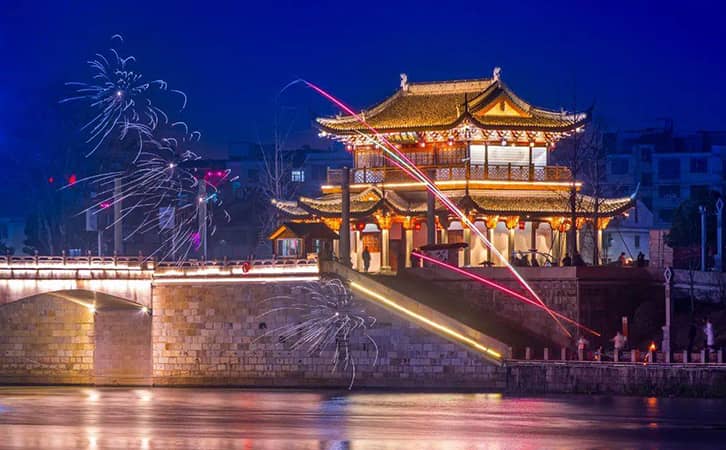
Yiwu Ancient City.
Local Cuisine and Accommodation Nearby
Exploring Yiwu Ancient City offers a delightful blend of rich history and vibrant local culture, and one of the best ways to immerse yourself in this experience is through its cuisine and nearby accommodations.
Culinary Delights
Yiwu’s culinary landscape is as diverse as its cultural heritage. Be sure to sample these local specialties during your visit:
-
Donghe Meat Pie: A beloved local treat, these thin, crispy pancakes are filled with savory pork and pan-fried to perfection. The flaky crust and juicy interior make them a must-try.
-
Shangxi Beef Offal Stew: For those with a penchant for bold flavors, this hearty stew features slow-cooked beef tripe and intestines, seasoned with spices that create a rich and aromatic broth.
-
Fotang White-Cut Goat Meat: Prepared through traditional boiling, this dish highlights the natural flavors of tender goat meat, typically served with soy sauce and vinegar.
-
Brown Sugar Twisted Dough: A crispy, deep-fried snack, drizzled with thick brown sugar syrup, offering a delightful crunch and sweetness that locals adore.
-
Tangyang Sticky Brown Sugar Cake: This chewy treat made from glutinous rice flour and brown sugar is kneaded into a soft dessert and is a perfect example of Yiwu’s sweet offerings.
For an authentic dining experience, consider visiting Binwang Night Market, where over 800 stalls showcase a variety of local delicacies and international snacks, all while soaking in the lively atmosphere that defines Yiwu.
Comfortable Accommodations
After indulging in Yiwu’s culinary treasures, you’ll want a cozy place to rest. Here are some recommended accommodations near Yiwu Ancient City, catering to various budgets:
-
Yiwu International Mansion: This upscale hotel offers modern amenities and easy access to key attractions, making it a perfect base for travelers looking to explore the city.
-
GreenTree Inn Yiwu Central: A budget-friendly option that doesn’t compromise on comfort, this hotel is conveniently located near Yiwu International Trade City, ideal for both business and leisure travelers.
-
Hanting Express Yiwu: Known for its affordable rates and clean accommodations, Hanting Express provides a comfortable stay with easy access to local dining and shopping areas.
-
Yiwu Huayi Hotel: This mid-range hotel features spacious rooms and a restaurant serving local cuisine, ensuring a restful night after a day of exploration.
With a rich tapestry of flavors and welcoming places to stay, Yiwu Ancient City invites you to indulge in its culinary delights and hospitality. Whether you’re savoring local dishes or resting in comfortable accommodations, your journey through Yiwu will be a memorable one.
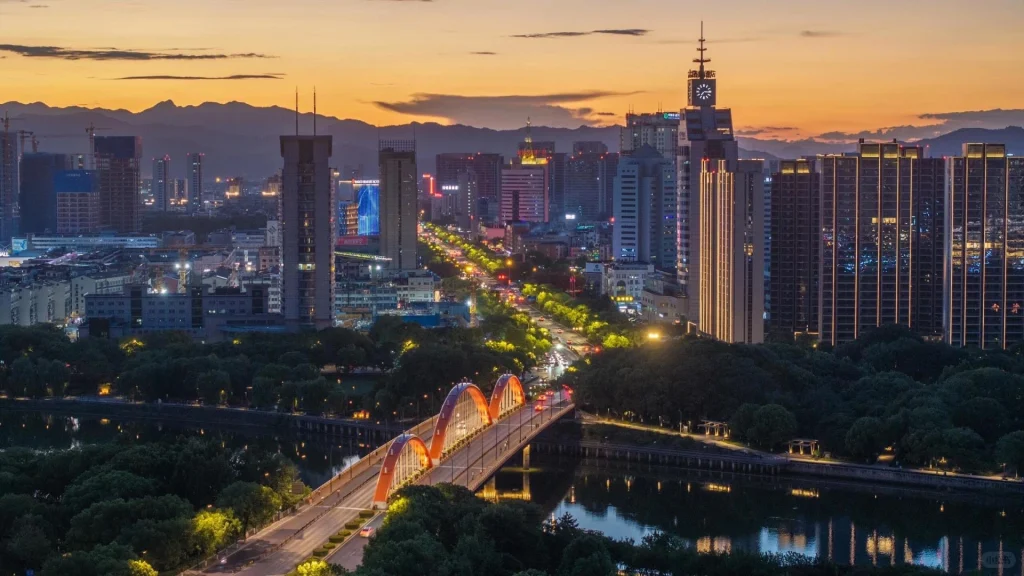
Yiwu Ancient City.
Frequently Asked Questions
Frequently Asked Questions about Yiwu Ancient City
1. What is Yiwu Ancient City known for?
Yiwu Ancient City is a historic site that showcases traditional Chinese architecture and cultural heritage. It’s renowned for its well-preserved streets, wooden storefronts, and rich history, making it a must-visit for travelers interested in experiencing the charm of ancient China.
2. How do I get to Yiwu Ancient City?
You can reach Yiwu Ancient City via Yiwu Airport or by train. The city is well-connected by rail, with Yiwu Station and Yiwu West Station serving as major hubs. From there, local taxis and public transportation options are available to take you directly to the ancient city.
3. What are the must-see attractions within Yiwu Ancient City?
While exploring Yiwu Ancient City, make sure to visit the historic streets lined with traditional architecture, the vibrant local markets, and significant landmarks like the Shuanglin Temple and the Feng Xuefeng Former Residence. Each site offers a glimpse into the city’s rich cultural tapestry.
4. Are there any local delicacies I should try in Yiwu?
Absolutely! Yiwu is famous for its culinary delights. Don’t miss trying Donghe Meat Pie, Shangxi Beef Offal Stew, and the sweet Tangyang Sticky Brown Sugar Cake. These dishes reflect the unique flavors of the region and are a treat for food lovers.
5. Is Yiwu Ancient City family-friendly?
Yes, Yiwu Ancient City is suitable for families. The open streets and parks provide plenty of space for children to explore. Additionally, the local markets and food stalls are engaging for all ages, offering a fun and interactive experience.
6. What is the best time to visit Yiwu Ancient City?
The best time to visit Yiwu is during spring (April to June) and autumn (September to November) when the weather is mild and pleasant. During these seasons, you can fully enjoy outdoor activities and cultural festivals that often take place.
7. Are there any cultural events or festivals held in Yiwu?
Yes, Yiwu hosts various cultural events throughout the year, such as the Yiwu Half Marathon and traditional festivals celebrating local heritage. These events provide a fantastic opportunity to immerse yourself in the local culture and engage with the community.
8. Is it easy to find accommodation near Yiwu Ancient City?
Yes, there are numerous accommodation options available near Yiwu Ancient City, ranging from budget-friendly hostels to luxurious hotels. Many establishments cater to international travelers, ensuring a comfortable stay while you’re exploring the area.
Final Thoughts on Your Trip
As you wrap up your exploration of Yiwu Ancient City, take a moment to reflect on the vibrant tapestry of experiences that this captivating destination offers. From the bustling stalls of the Yiwu International Trade City, where the world meets in a symphony of trade, to the serene beauty of Fotang Ancient Town, where history whispers through its wooden storefronts and traditional architecture, Yiwu is a place that beautifully marries the old with the new.
Indulge in the local culinary delights, such as the crispy Donghe Meat Pie and the sweet Tangyang Sticky Brown Sugar Cake, which are not just meals but stories of culture and heritage served on a plate. The city’s commitment to preserving its intangible cultural heritage is evident in the craftsmanship found in every corner, from the intricate wood carvings to the vibrant folk performances.
With its rich history, diverse population, and dynamic markets, Yiwu stands as a testament to the enduring spirit of its people and the global connections it fosters. As you depart, carry with you not just souvenirs, but memories and stories that will inspire your future adventures. Yiwu is more than just a destination; it’s a journey into the heart of China’s trade and cultural legacy. Safe travels, and may your wanderlust lead you to many more enchanting places!